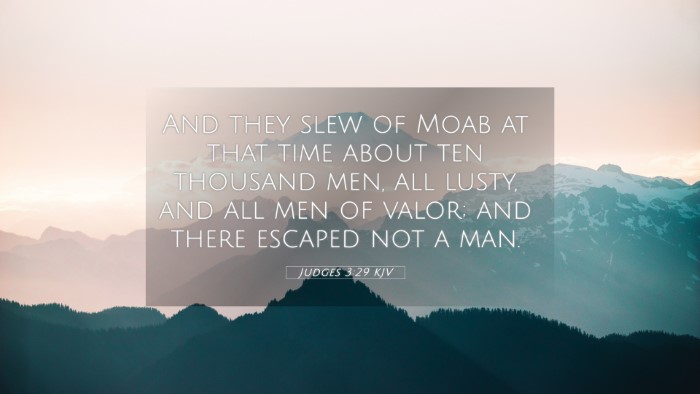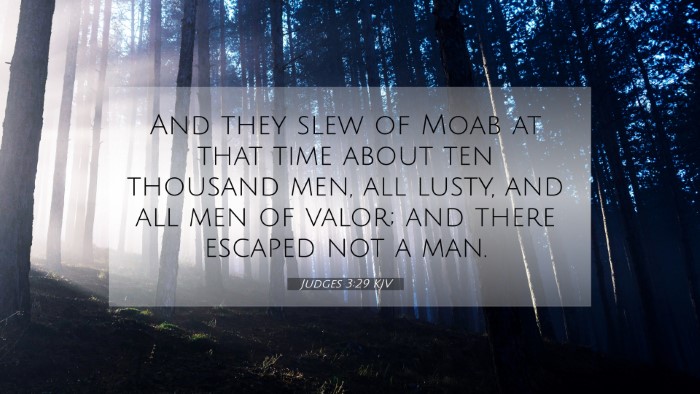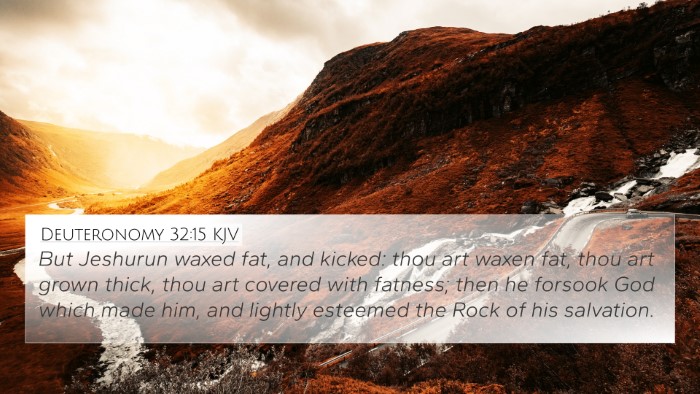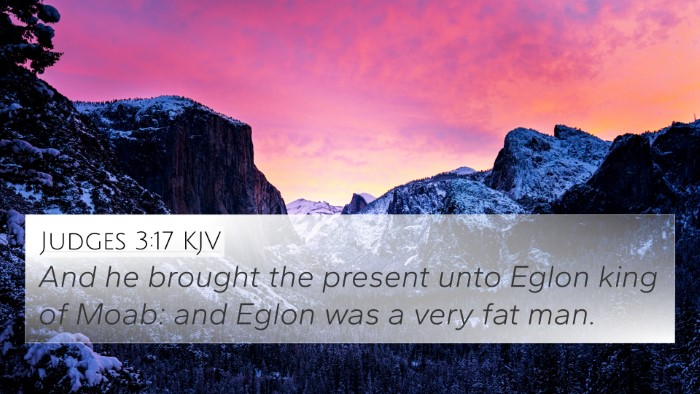Understanding Judges 3:29
Judges 3:29 states, "And they slew of Moab at that time about ten thousand men, all lusty, and all men of valor; and there escaped not a man." This verse captures a moment of significant military victory for the Israelites under the leadership of Ehud, who delivered them from oppression. Below is a summarized interpretation of this verse, drawing insights from various public domain commentaries.
Commentary Insights
-
Matthew Henry:
Henry explains that Ehud’s victory against Moab was an act of divine deliverance. The slaying of ten thousand mighty men signifies God’s support for Israel and highlights the severity of their oppression. Second, this victory serves to demonstrate the power of God working through an obedient servant, pointing to the importance of faith in achieving great tasks.
-
Albert Barnes:
Barnes details that the description of the Moabites as "lusty" indicates they were strong and robust warriors, which further emphasizes the miraculous nature of Israel's victory. The annihilation of such formidable foes was a testament to the success of Ehud’s strategy and God’s providence, reinforcing the idea that the battle belongs to the Lord.
-
Adam Clarke:
Clarke observes that the exact number of ten thousand emphasizes the substantial military loss for Moab, marking a definitive end to their threat. This fulfillment of God’s promise to deliver Israel instills hope, demonstrating that obedience leads to liberation from oppression. Clarke also highlights thematic connections to other instances of divine intervention in battles throughout the scriptures.
Thematic Connections and Cross-References
This verse serves as a pivotal point in the narrative of Israel’s judges and is rich in connections to other scripture. Here are some related Bible verses:
- Deuteronomy 20:1: “When you go out to battle against your enemies...”, reminding us of God’s promises of protection in warfare.
- Judges 4:14: The call to action that includes divine instructions for battles, echoing God’s guidance similar to Ehud’s obedience.
- 1 Samuel 14:6: “For there is no restraint to the Lord to save by many or by few.” This verse highlights God’s power in delivering His people regardless of human limitations.
- Psalms 44:3: “For they got not the land in possession by their own sword...” Identifying the importance of divine intervention in giving victory.
- Hebrews 11:32-34: The mention of judges, faith, and deliverance indicates the legacy of those who relied on God for military victories.
- 2 Chronicles 20:15: "The battle is not yours, but God’s." This emphasizes a continued theme throughout Israel's history of divine support in their conflicts.
- Romans 8:31: “If God be for us, who can be against us?” enhances the overarching narrative of reliance and trust in God during adversities.
Comparative Bible Verse Analysis
When reflecting on Judges 3:29, it's important to recognize its place within the broader biblical narrative. This act of deliverance connects with the theme of reliance on divine authority seen in various contexts:
- Old Testament Context: Other victories in the book of Judges, such as those found in chapters 4 and 7, reflect similar divine assistance making noted parallels in the narrative of liberation.
- New Testament Reflection: The concept of spiritual warfare in Ephesians 6:12 may draw thematic lines back to this moment, demonstrating the timeless relevance of trusting God against adversaries.
Tools for Bible Cross-Referencing
Understanding Judges 3:29 within the scope of related scriptures can significantly enhance one’s study. Here are some effective methods and tools for cross-referencing:
- Bible Concordance: Use a concordance to locate keywords and their occurrences throughout the Bible, offering a tool for seeing where God’s deliverance appears.
- Cross-References in Study Bibles: Many study Bibles provide margin notes that link verses, clarifying connections between texts on similar themes.
- Bible Reference Resources: Utilize cross-reference guides that compile thematic studies, enhancing the understanding of connections.
- Scriptural Mapping: Mapping connections among verses can visually illustrate the narrative flow and thematic elements across different texts.
Conclusion
Judges 3:29 provides a vivid account of God’s deliverance through Ehud, serving as a powerful example of faith, divine support, and victory. The connections to other scriptures underscore the internal dialogue within the Bible, offering a comprehensive view of how God works through individuals and events across time. Embracing cross-referencing techniques not only deepens understanding but also enriches one’s faith journey as different biblical stories intertwine under a common theme of reliance on the Lord.






